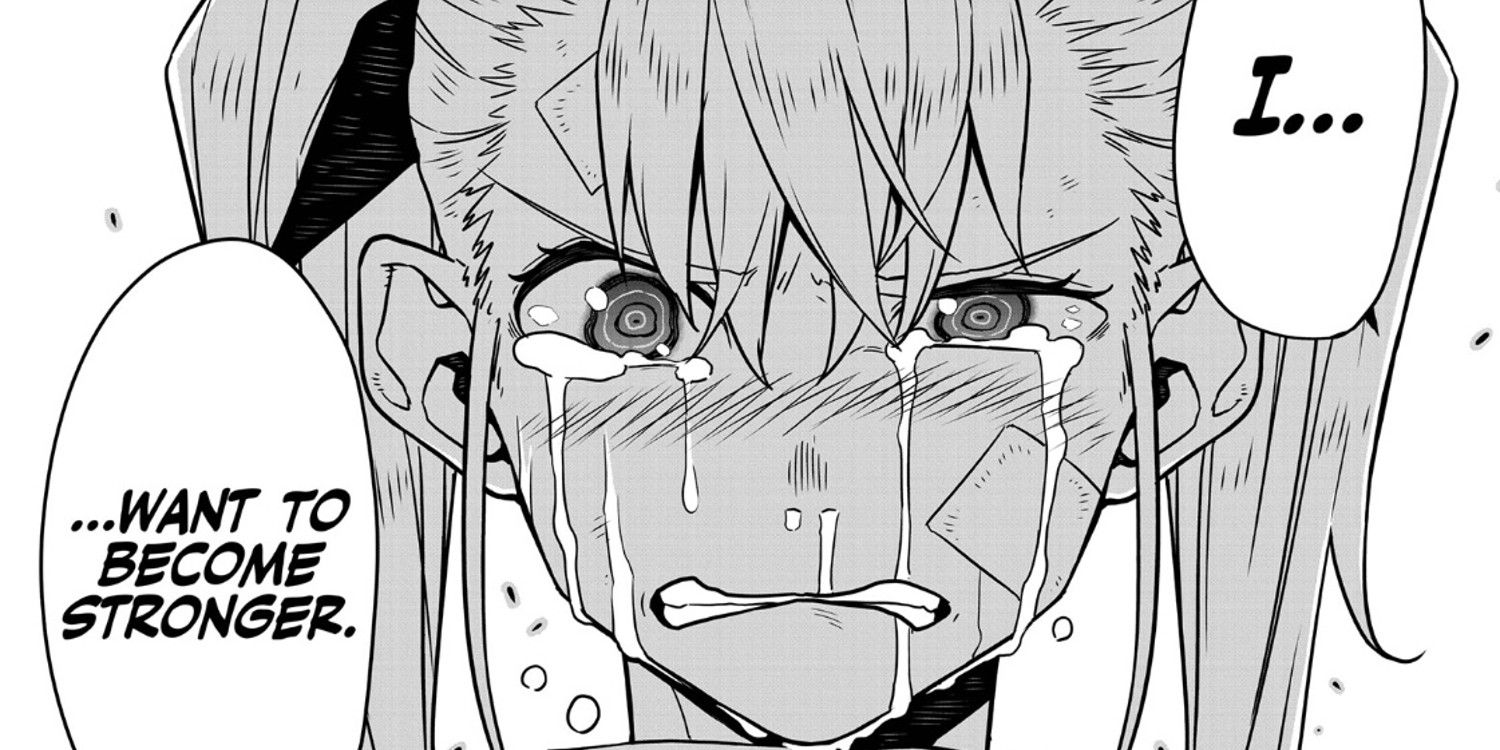Warning! Spoilers ahead for Attack on Titan and Kaiju No. 8 chapter 54!
Kaiju No. 8's version of Mikasa Ackerman from Attack on Titan is going down a more tragic road than the original ever did. Though the two manga have their differences, this latest chapter of Kaiju No. 8 proves that it won't hesitate to get just as grim as its predecessor.
With Kaiju No. 8 essentially being a new take on Attack on Titan's early chapters, it's not difficult to see the connection between Mikasa and Kikoru Shinomiya. Mikasa's most defining moment transpired in the manga's final installments when Eren Yeager's ostensible descent into villainy forced her to contend with having to kill the man she respected and loved. Kikoru is wrestling with a similar existential crisis in chapter 54 of Kaiju No. 8 by mangaka Naoya Matsumoto.
Recently, Kaiju No. 8's Kikoru lost her father when Kaiju No. 9 zombified him. Kikoru is so distraught by this that she doesn't even attend his funeral. When later confronted by her boss, she can only articulate her sorrow by saying that she must get stronger. How this emotionless comment relates to her character is similar to how Mikasa reacts to Eren's new evil persona in Attack on Titan. Mikasa constantly refuses to believe that the new Eren is not the same boy she grew up with. This was the case even though he broke her heart by lying that the only reason why she acted the way she did around him was because of her Ackerman bloodline. Despite the overwhelming evidence that followed, Mikasa only strengthened her resolve.
Kikoru's seemingly emotionally detached reaction - or badly written cliche - to her father's death follows a similar pattern. Much like how Mikasa relied on her experiences with Eren to shape her decisions, Kikoru is reverting back to her old self and will undoubtedly espouse her earlier views more strongly than before as a sort of coping mechanism. At the beginning of Kaiju No. 8, Kikoru perfectly embodied the first stage of what constitutes a typical Tsundere. She was overly proud of her abilities to such an extent that she acted overly aloof and distant but particularly enjoyed proving and articulating her superiority over others, especially when she had the opportunity to identify others' flaws in relation to her own strengths in an effort to further demonstrate her dominance. While this part of her never changed, it lessened exceedingly when romance soon entered the picture with her obvious feelings for Kafka Hibino surfacing. This was a major development, as the basis of their relationship originally involved her mocking his inherent weakness consistently.
Kikoru's coping mechanism of needing to get stronger is only exacerbated by promises she inadvertently broke earlier in life. In chapter 44, Kaiju No. 8 revealed how the death of her mother when she was a child shaped Kikoru into the woman she is today. Kikoru had promised that she would protect her mother, so when she died, Kikoru was understandably angry at herself, which was why she later became obsessed with wanting to protect everyone else in her stead. Now her need to accumulate more power will only increase since she now failed to protect both of her parents.
The difference, however, is that in Attack on Titan, Mikasa Ackerman turned out to be right about Eren, justifying her ridiculous hope that he was still the same person. So even though she killed him, she was fulfilling his wish to make the world a better place. The reader also doesn't witness her prolonged struggle with Eren's death except in a few cells of the final chapter. For Kaiju No. 8's Kikoru, her pain and reversion to a more amplified version of her former self have only just begun.


